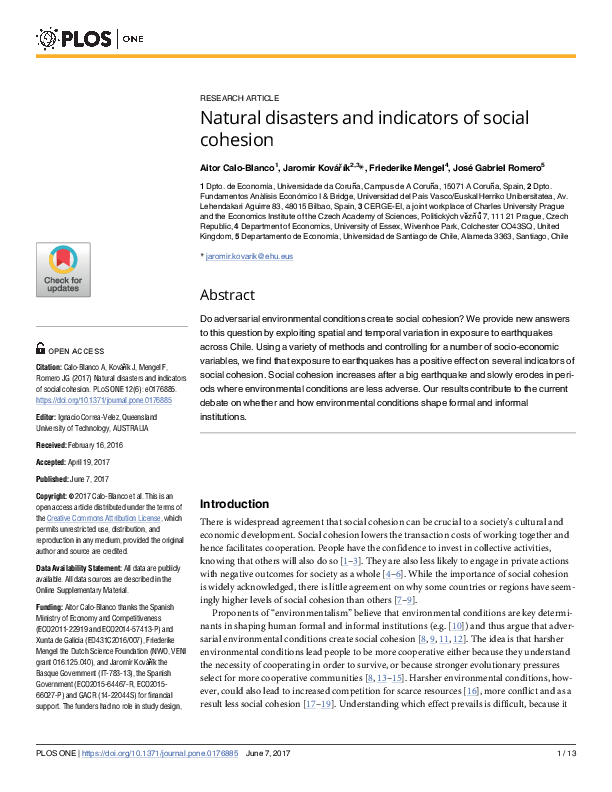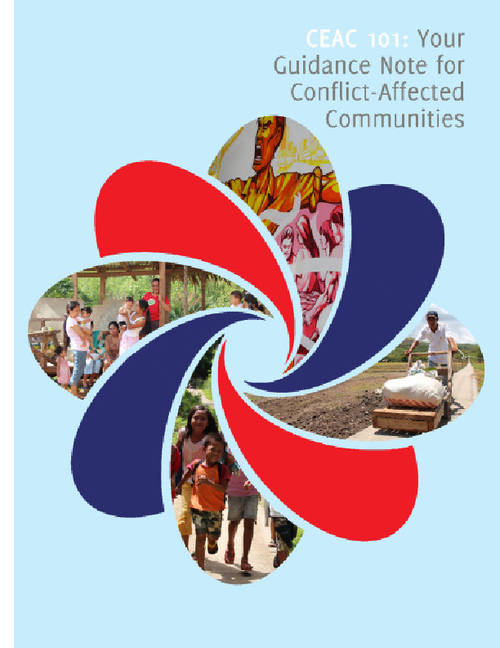Back to Results
Natural disasters and indicators of social cohesion
Key facts
Journal/Publisher
PLoS ONE
Type of publication
Journal article
Elements of social cohesion
Trust
Participation
Participation
Geographical focus
Chile
Main thematic areas
Climate
Summary
Do adversarial environmental conditions create social cohesion? We provide new answersto this question by exploiting spatial and temporal variation in exposure to earthquakesacross Chile. Using a variety of methods and controlling for a number of socio-economicvariables, we find that exposure to earthquakes has a positive effect on several indicators ofsocial cohesion. Social cohesion increases after a big earthquake and slowly erodes in periodswhere environmental conditions are less adverse. Our results contribute to the currentdebate on whether and how environmental conditions shape formal and informalinstitutions.

Download
Explore the hub further

Concept
Research Institute Social Cohesion (RISC) - Forschungsinstitut Gesellschaftlicher Zusammenhalt (FGZ)

Library

